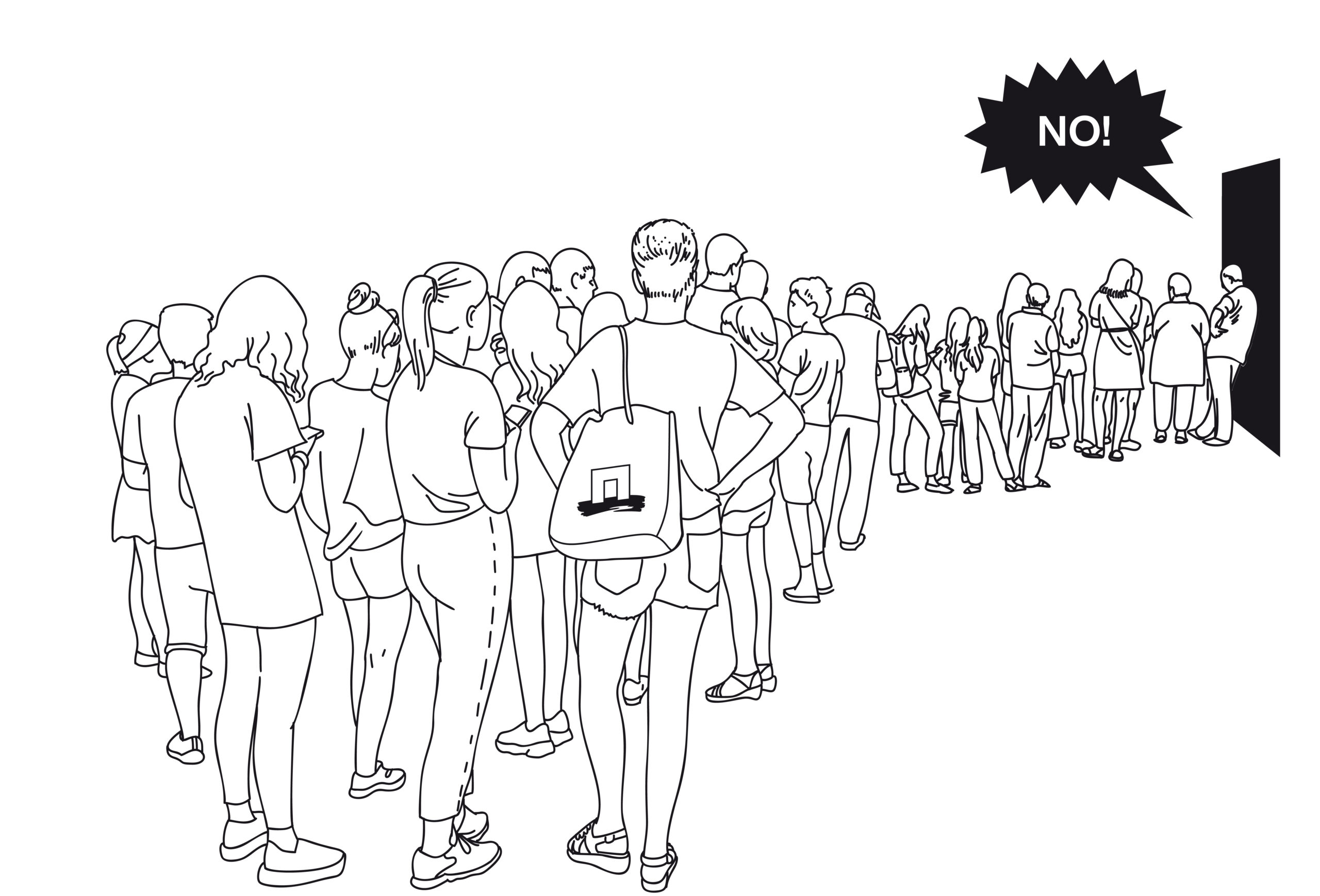Your chance to sample the work culture in a company, to acquire specific skills, to experience what a real job is like… But because of the coronavirus crisis, there are far fewer internships available. ‘My dream was shattered.’
Working from home, uncertainty, the economic crisis, negative travel advice – these are just a few of the consequences of the coronavirus pandemic that affect internships. It is harder for many students to find an internship, confirms, Astrid van Noordenburg, the coordinator of Student Career Services. ‘The demand is the same but because of Covid-19, there are fewer internship places and vacancies.’ Education director Arnold Bregt has watched it happen: ‘At companies that take interns they are working at home too, which makes it difficult to provide a good induction period for students.’ And not all internships can be done online – those involving lab work, for instance. Noordenburg has noticed that it is especially difficult for international students to find an internship: ‘Some companies are looking for students who speak Dutch.’ Also, students from WUR are not allowed to do internships in countries classified code orange or code red, unless it is their home country. That makes international internships even more difficult.
Instead of travelling and a dream internship, I was sitting at the computer at home with my parents
Damage
A working party will be studying the scale of the problem at Wageningen in the coming weeks. Bregt: ‘Many students postpone their internship. In Covid times, the non-course degree components – the internships and theses – are going to pose big problems the next education period.’ The big issue is the learning goals at the programme level. ‘After period 6 we analysed whether the learning outcomes at programme level were at risk,’ explains Bregt. ‘The teaching of courses went almost entirely online in periods 5 and 6, and that went well, but we saw that internships and theses were being postponed. We hoped that people could catch up after the summer holiday and in the autumn. Not much damage had been done to the learning outcomes at programme level by the end of period 6.’ That damage could occur now, due to the second wave of coronavirus infections, if students are unable to acquire important skills on alternative internships.
Solutions
Each chair group is dealing with the problem in its own way. Bregt: ‘We are now exploring whether the university should take measures across the board, and what they might be.’ Meanwhile, students have a couple of options, one of them being to drop out of the programme at WUR temporarily. WUR established this option during the first coronavirus wave, and it is particularly relevant to international students, for whom a few months’ delay can cost thousands of euros. ‘Students can make use of this arrangement,’ concludes Bregt. Noordenburg: ‘Within the programme, we look for appropriate solutions individually with students. It could be writing a second thesis instead of doing an internship, or switching around the thesis and the internship.
Internships and theses are going to be the big problem in the next period
And there are more internships available within WUR.’ Bregt offers one last tip: ‘Go and talk to the people who are there for that. The internships coordinator and the graduation coordinator for the chair groups. Creative solutions are sometimes found.’
Chantal van Drimmelen, MSc Biology
Fed up
‘I was looking forward to my internship in America for months, and then suddenly it was gone. Two days before my flight, my mother woke me up to tell me that Trump had closed the borders. I couldn’t believe it at first, until I Googled it. Then I panicked: I didn’t know what I should do. After a period of uncertainty and frustration, I agreed with my supervisors that I would use existing data to build a model at home. Four weeks later I could start a completely new internship. I am very grateful to my supervisors for helping me to graduate on time. My internship was the last component, money was a factor and I was due to start a PhD straight after my internship. I was extremely fed up, though. Instead of a dream internship and trip, I was sitting at a computer at home with my parents and my younger sister, because I had given up my room in Wageningen. But I tried to make the best of it: and it was nice to learn new skills and I got to know some nice people.’
Talis Bosma, MSc Organic Agriculture
No Egypt
‘I’m now working on plan C for my internship. First I was going to Egypt with a Dutch company, but that dream – which I had worked on for six months – was shattered two weeks before my departure date. After that I was going to work for the same project on location in the Netherlands, but that fell apart too because of the lockdown and working at home. And now I’m working at my computer in my student room on lots of different projects in North-West Africa, even though I really didn’t want an office-based internship. When my first plan collapsed, it was very disappointing and frustrating, partly because WUR took a long time to provide clarity on whether I was allowed to go, whereas the company was really keen for me to come. In considered going to Egypt anyway, but I wouldn’t have been free to travel around there and the healthcare isn’t great. And I didn’t want to wait. So I accepted it: I am trying to be flexible and make the best of it. And I’m grateful, because it is much harder to find an internship now, I won’t have to extend, and I’m working on nice projects. I am developing new ideas about what I find interesting and what I can do. My aim with every assignment is to expand my horizons, and that has already happened.’

 Illustration Larissa Mulder/Alfred Heikamp
Illustration Larissa Mulder/Alfred Heikamp